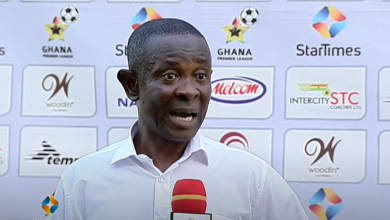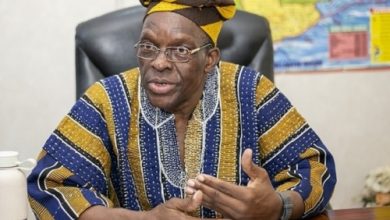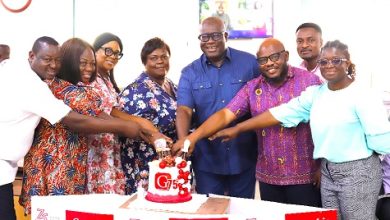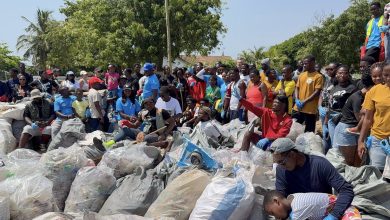
President John Dramani Mahama has urged African Union (AU) member states and leaders to empower the institutions mandated to lead the campaign for reparative justice.
According to President Mahama, the AU Executive Council’s approval of terms of reference for the AU Commission of Experts on Reparations and the African Union Reference Group of Legal Experts on Reparations was a commendable milestone that must be backed with adequate resources.
“We must now move swiftly to personalise these instruments. We must empower these bodies with the resources, visibility, and mandate to lead us on this noble journey of truth, justice, and restitution. Let this not be another declaration left on paper; let it be a living mandate for action,” he said.
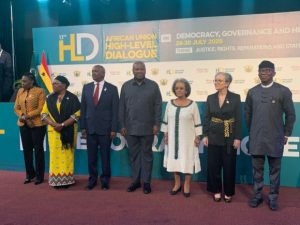
Democracy and civic space
The former President called on participants to take a decisive stand for legally binding frameworks across all AU member states to protect the continent’s civic space. He emphasised the right to organise, protest, and participate, and called for the protection of press freedom and the voices of youth, women, and marginalised groups.
He underscored that African leaders must practise a democracy that is not only institutional but also rooted in the lived experiences and aspirations of their citizens.
“Democracy cannot thrive in the presence of fear or repression. The legitimacy of governments depends on the inclusion of all,” he stated.
As part of efforts to strengthen state building, President Mahama advocated for political education as a key pillar. He noted that widespread civic disengagement was often a result of exclusion, mistrust, and systemic failure.
“Therefore, we must integrate political and civic education into our school curriculum. We must encourage public engagement through national dialogues and community platforms, and we must ensure that our democratic institutions speak a language our citizens understand and trust,” he urged.
President Mahama encouraged African leaders to boldly pursue justice not only for the past but also for present and future generations. He emphasised that the quest for justice must inform the policies enacted and the institutions built across the continent.
Context and event
The High-Level Dialogue (HLD) is a flagship initiative of the AU convened under the auspices of the African Governance Architecture and African Peace and Security Architecture (AGA–APSA) Platform. It provides an annual space for inclusive reflection and policy dialogue on democratic governance, human rights, peace, and security.
This year’s two-day event, themed “Justice, Reparations and State Building,” sought to explore structural and normative enablers to deepen democratic governance across Africa.
The event was attended by a host of dignitaries including former Heads of State, former Prime Ministers and Vice Presidents, AU leaders, ministers, African heads of mission, and international delegations.
Notable personalities present included the Commissioner of the AU Commission on Political Affairs, Peace and Security, Ambassador Bankole Adeoye; former Ethiopian President, Sahle-Work Zewde; former President of Botswana, Mokgweetsi Eric Masisi; former Vice President of Zimbabwe, Joice Mujuru; former Tunisian Prime Minister, Najla Bouden; and the African Youth Ambassador for Peace (AYAP), Simone Mbode Diouf.
Also in attendance were Ghana’s Acting Chief Justice, Justice Paul Baffoe-Bonney; former Chief Justice Sophia Akuffo; NDC General Secretary, Fifi Fiavi Kwetey; and Minister for Communication, Innovation and Digital Technology, Samuel Nartey George.
Call for collaboration
In his welcome address, the Minister for Foreign Affairs, Samuel Okudzeto Ablakwa, underscored that sustainable development and peace must be anchored in fairness and redress of historical injustice.
He described the dialogue as a timely opportunity to explore pathways for justice inspired by the wisdom of Africa’s past leaders, the energy of the youth, and the resilience of the diaspora.
Ghana, he said, remains steadfast in its advocacy for reparative justice and inclusive state building rooted in the legacies of colonialism, slavery, apartheid, and exploitation.
Transformation through justice
Delivering a speech on behalf of AU Commission Chairperson Mahmoud Ali Youssouf, Commissioner Bankole Adeoye stated that Africa must focus on transformative change driven by peace and justice.
“We continue to aspire for a united, dignified, globally influential Africa. But, as we gather today, the fundamental truth is that justice, including reparative justice, peace and stability, must be the cardinal principles, the cornerstones of our transformation,” he said.
He stressed that reparations are not isolated from justice and collective rights but are foundational to reconciliation, democratic renewal, economic advancement, and sustainable peace.
Commissioner Adeoye noted that although Africa faces daunting challenges, they are not insurmountable. He called on African leaders and the AU to reaffirm their commitment to the Union’s shared values and norms.
